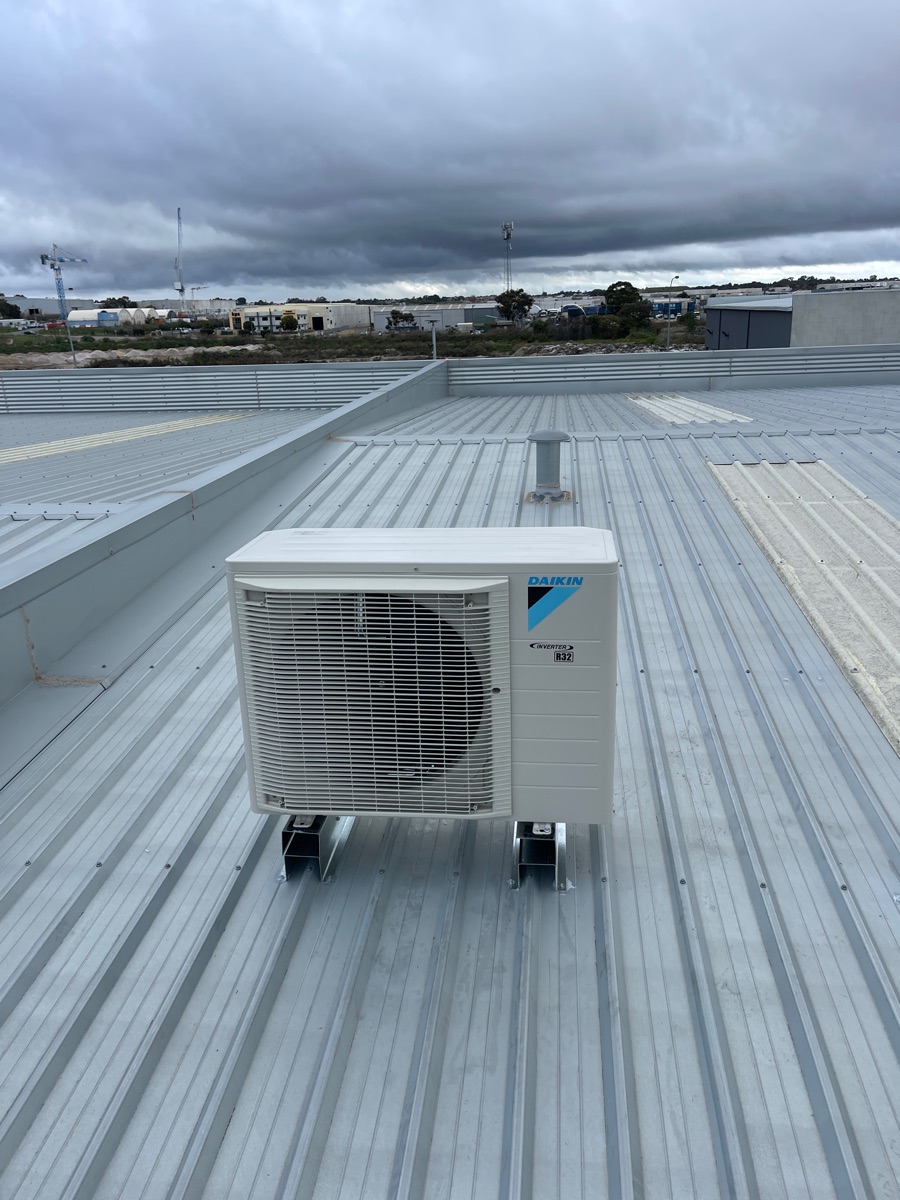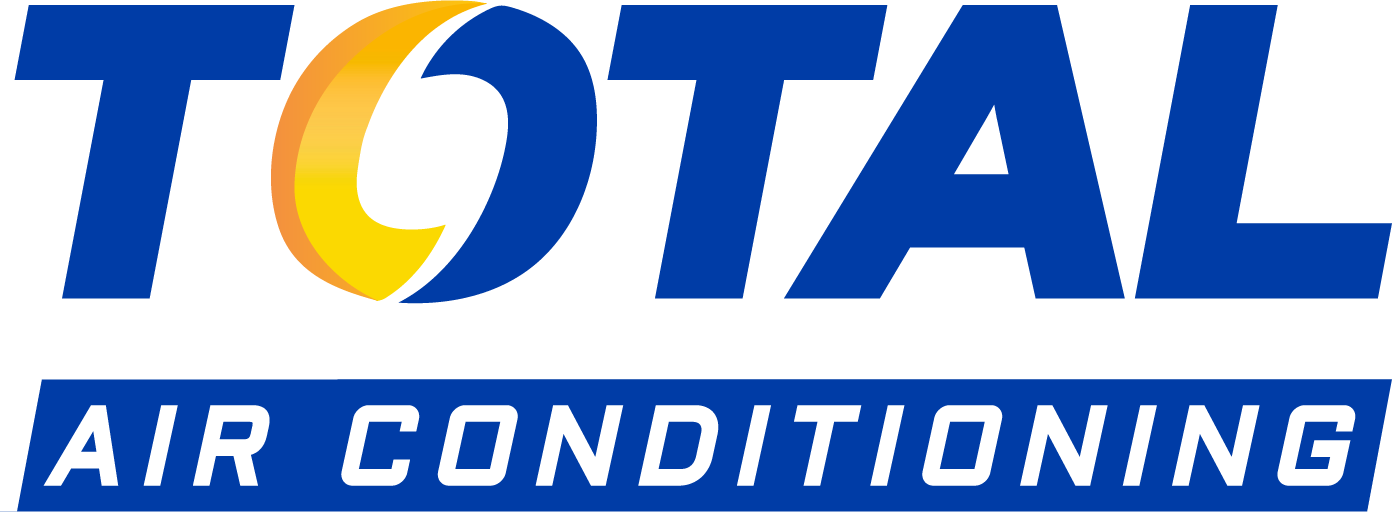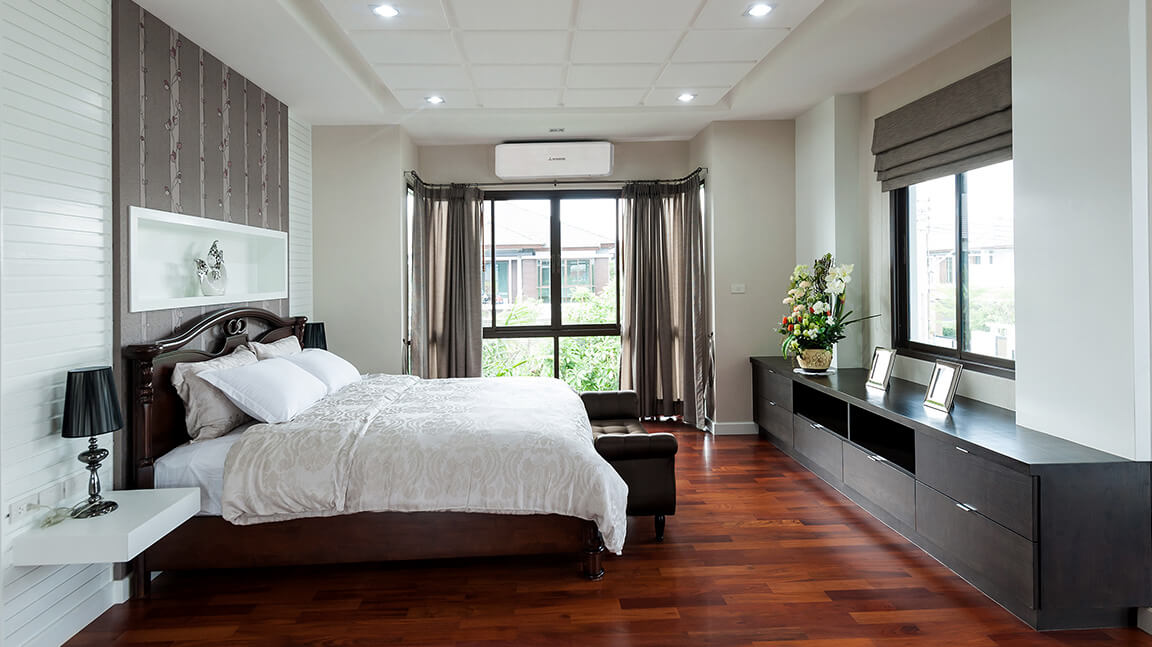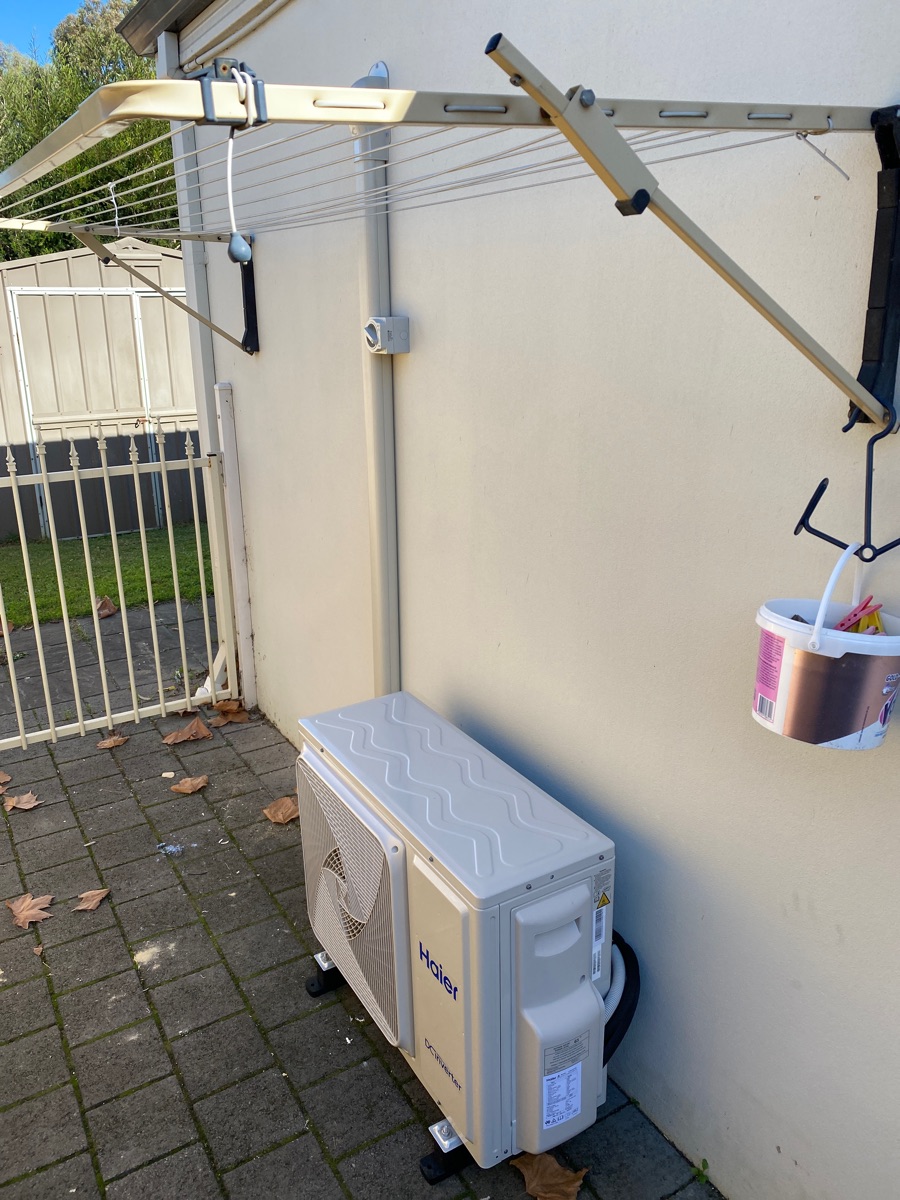How Does Air Conditioning Work?

As the world continues to heat up, cooling buildings continues to grow as a business. In 2021, the global air conditioning market is valued at $55.12 billion, and experts predict it will grow by about four per cent a year until 2027.
At home, whether you're controlling your air conditioner for comfort or for a science fair project, you may have wondered: how does air conditioning work?
We'll cover everything in this air conditioning guide, including the history of AC, how it works, the benefits, and useful tips.
Let's dive in.
The History of Air Conditioning
The first modern air conditioner was invented by Willis Haviland Carrier in 1902. He was an engineer who was experimenting with controlling humidity to solve an issue at a printing plant in Brooklyn, NY.
He used some concepts that were recently created for mechanical refrigeration and applied them to his system. In his device, the air was sent through coils that were filled with cold water. This cooled the air while also removing moisture to lower humidity in the room.
In 1933, the Carrier Air Conditioning Company of America build an air conditioner that used a condensing unit that functioned on a belt drive. This machine became the model for all other air conditioning systems that were created after.
Today's air conditioning units operate on the same fundamental system but have more complicated and modern technology. Let's take a look at how they work.
How Does Air Conditioning Work?
Today, there are a variety of different kinds of air conditioning units, but they all operate similarly.
An air conditioner produces cold air inside a building by removing heat and humidity from that air. It keeps the cold air inside while removing the heat and humidity outside.
A typical air conditioner has three main mechanical parts: a compressor, a condenser coil, and an evaporator coil. A special chemical called refrigerant is also added to the AC unit. Together, the three mechanical components work to convert the refrigerant back and forth from liquid to gas.
The compressor begins the process by increasing the pressure and temperature of the refrigerant. This decreases the amount of the refrigerant gas and sends it to the condenser coil. There, the condenser coil converts the gas back into liquid.
After that, the liquid is sent to the evaporator coil. This new coil causes the liquid to evaporate, which lowers the temperature of the coil. A fan inside the AC then blows air onto the chilled evaporator coil, which results in cold air blowing into your building. The refrigerant in turn absorbs the heat from your building.
Finally, the cooled air circulates through your home while the unwanted heat and moisture from the evaporated gas are sent outside. The refrigerant then returns to a liquid state and the cycle continues until your home is comfortably cool.
What Are the Different Types of AC Systems?
Generally speaking, there are two types of air conditioners: central cooling systems and ductless split systems. Although they both achieve the same results, they work differently. Let's take a look at how.
Central Cooling Systems
Central air conditioners are made to cool your entire home or building. To do this, they spread cold air through air ducts throughout the home. Typically, central air conditioning systems have one part of the system that is outside and another that is inside and are connected by copper tubes.
These systems typically take up a lot of space (at least compared to a ductless system). While central AC is effective at cooling your entire house, they're not the most efficient at saving energy and can cause you to have high energy costs.
Ductless Split Systems
Ductless systems, on the other hand, only cool one room in a building. These systems do not travel through air ducts in the home (hence the name) but flow directly from indoor units.
Although ductless systems also have both an indoor and outdoor unit, ductless systems can have up to five indoor units for every outdoor unit depending on the type of system. Ductless systems are much more energy-efficient than central cooling systems. They might cost more upfront, but they can help you save money on your energy bill in the long run.
Benefits of Air Conditioners
Air conditioners don't just lower the temperature of the air. They have a number of helpful health and safety benefits as well. Let's take a look at some of them.
Filter Particles and Allergens
Air conditioning units have filters that can remove allergens like pollen and dust from circulating in the air. This effectively cleans the air that you breathe in your home.
It also acts like a dehumidifier by drawing out moisture from inside and pushing it outside.
This is particularly beneficial to people who have sensitive allergies. Cleaner air reduces the risk of asthma attacks.
Reduce Risk of Heat Stroke and Dehydration
When it starts to get hotter, you're more at risk of getting heat stroke. Having an air conditioner keeps your body cool and reduces any risk of heat-related illnesses. You also have a reduced risk of dehydration because you sweat less.
Better Sleep
Keeping your bedroom cool with regulated temperatures means you'll be able to sleep more comfortably throughout the night. According to the Sleep Foundation, the optimal temperature to sleep is around 18 degrees Celsius.
Better Security
When you have an air conditioner, you don't need to leave any windows or doors open. In theory, this keeps you safer from unwanted visitors.
Fewer Critters Inside
Unwanted visitors don't just mean people, it can also mean insects, bugs, or small animals. Keeping your access points closed means you won't be surprised by critters that you don't want inside.
The filters in air conditioning units are also great at preventing fleas from getting into your home or spreading on your pets' fur.
Less Noise Pollution
This is especially helpful for people who live in busy cities or near main streets. Getting an effective air conditioner means less noise from outside, keeping your home quiet and peaceful.
Air Conditioning Tips
Whether your AC unit is built for your whole house or just for one small room, there are several things you can do to make sure it's working as efficiently as possible. Follow these tips to keep your AC running smoothly all summer long.
Keep the Outdoor Condenser Clean
It's important to vacuum the fins of your AC unit. Clean around your outdoor condenser unit and keep it clear of debris. This will allow it to run as efficiently as possible.
Raise the Temperature
Increasing your thermostat by a couple of degrees can help you save energy and money. If you get a programmable thermostat (see below), you can have this change automatically at different times of the day.
Get a Programmable or Smart Thermostat
Nowadays, having a programmable thermostat is a must-have. These let you set temperatures at different times throughout the day, which allows you to save money and manage your cooling easier.
You can even opt for a smart thermostat. These have advanced features such as the following:
- Programming itself automatically based on the weather
- Remote control from an app on your phone
- Smart scheduling
- Movement sensors
- Long-term learning
- High-tech energy tracking
All of these features allow you to have more control over your air conditioning and save money in the long run.
Keep Heat-Producing Devices Away From the Thermostat
If hot objects like a computer, lamp or kitchen appliance produce heat near your thermostat, it will confuse the device. It might tell your AC that it needs to cool your home more, which can waste more energy and ultimately money.
Insulate Any Exposed Ductwork
It is important that you make sure that the ductwork that goes through unconditioned space is completely sealed. If it is, it could leak conditioned air and waste energy. You can fix leaks with special duct-sealing tape that is UL 181-rated, but check with a professional to make sure they are properly insulated.
Key Takeaways
That should answer your question: "How does air conditioning work?"
Ever since its inception in 1902, air conditioning hasn't changed a lot. It still works by the same basic principles that Carrier designed in his original contraption.
Understanding how your air conditioning unit works isn't just a random fact to know — it will help you maintain your air conditioning system better, which will, in turn, save you money and energy.
If you're in the market for a new AC unit or need an efficient, high-quality service to keep your air conditioning system running at peak performance, don't hesitate to get a FREE quote today!




